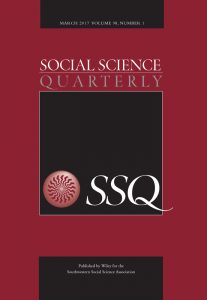Assembling wool and grounding globalization
In our recently published paper in Sociologia Ruralis, ‘Unravelling the global wool assemblage: researching place and production networks in the global countryside’ [1] we demonstrated the utility of assemblage thinking for revealing how globalization works through specific grounded relations and connections between places; remaking those places in the process. Despite being the subject of critique from various theoretical angles for decades, globalization is still frequently deployed as a top-down metaconcept to describe many of the processes and tendencies seen in the...




















